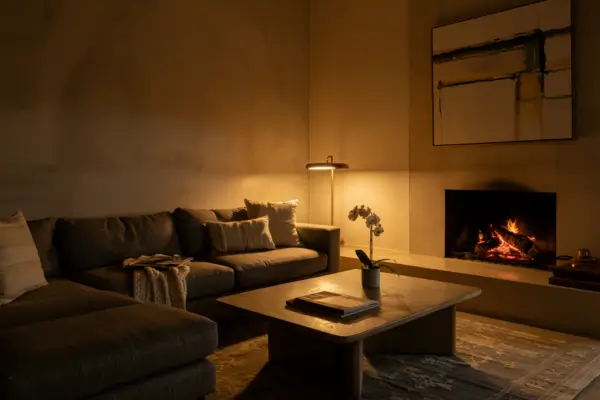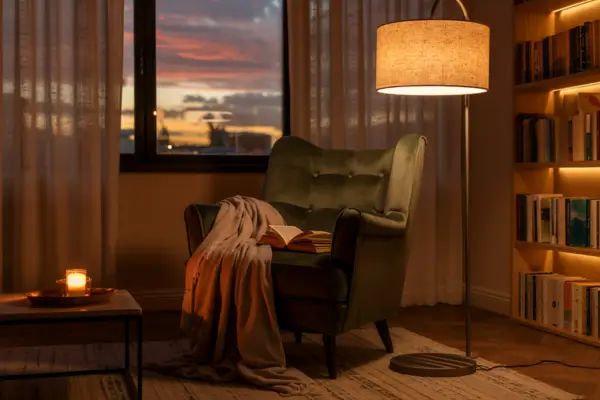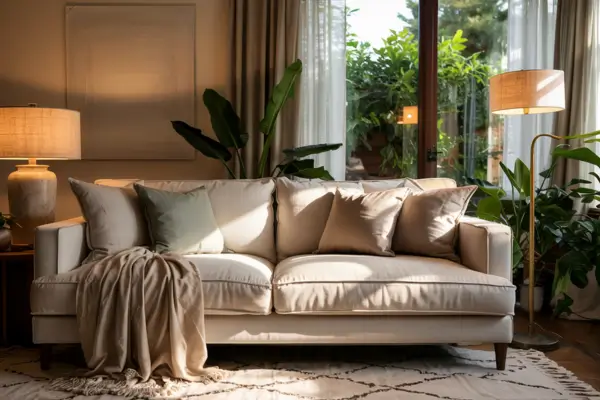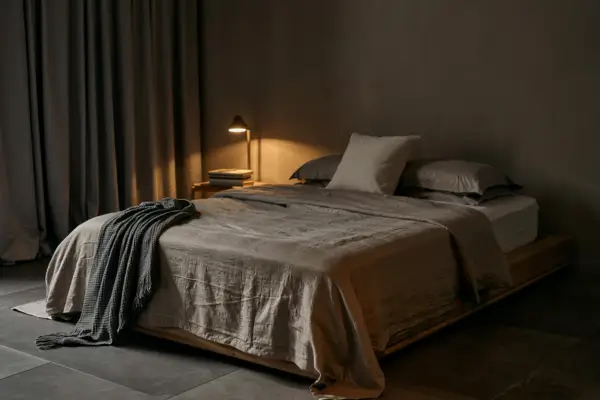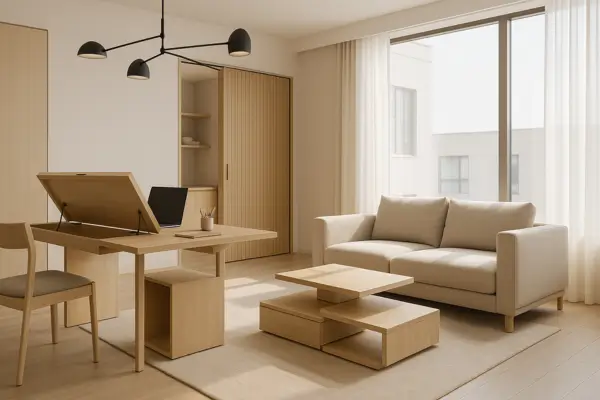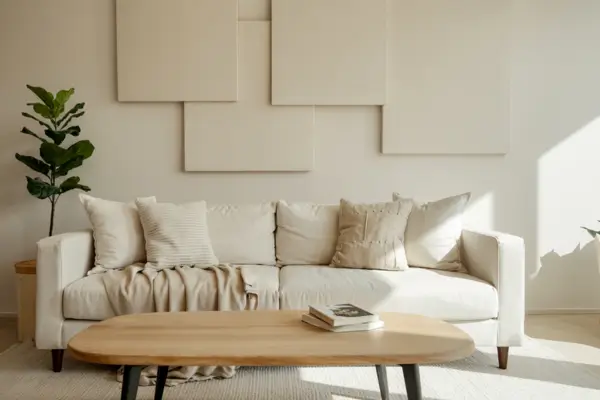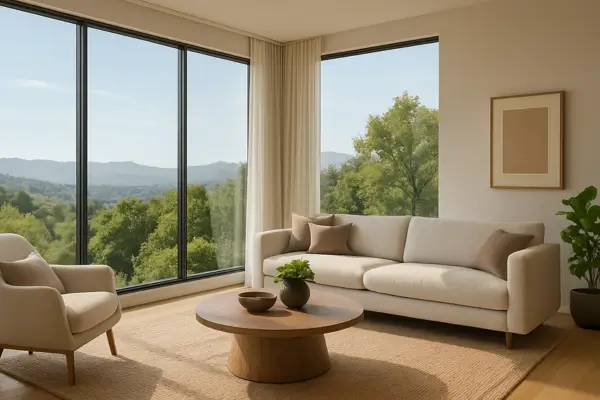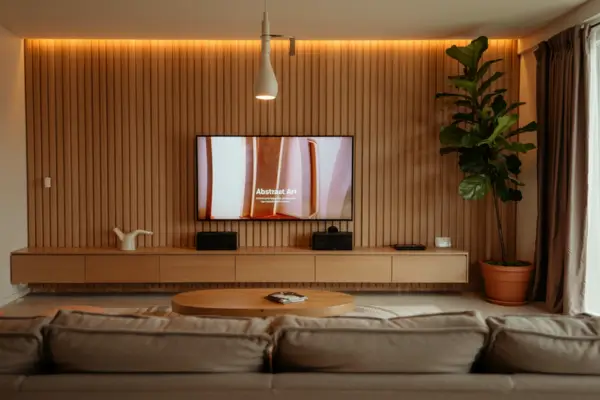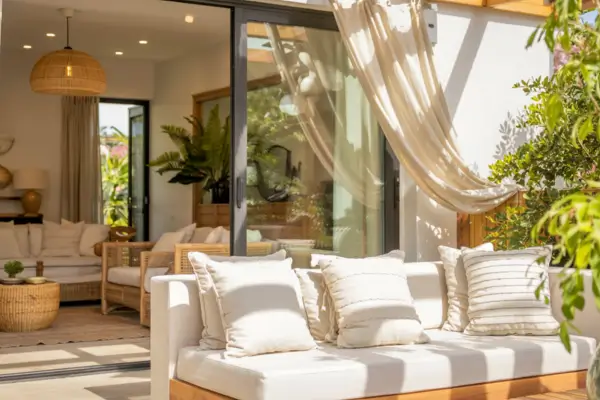Lighting plays a pivotal role in interior design, far beyond just making a room visible. The right lighting can influence mood, highlight architectural features, and enhance the emotional atmosphere of a space. In particular, mood lighting—the strategic placement of lamps, fixtures, and light tones—can transform an ordinary room into a warm, calming, or even energizing …
There’s a magical moment in every day when natural light softens, colors grow deeper, and shadows stretch across our interiors—this is dusk. Often overlooked in design planning, dusk offers an opportunity to create emotionally rich, visually dynamic spaces that shift in tone and function. Rather than relying solely on daytime brightness or nighttime coziness, designing …
What if your home wasn’t just a place you live, but a space that actively supports how you want to feel every day? That’s the premise behind emotional design—an approach that places your well-being, mindset, and daily emotional experience at the center of interior planning. Instead of choosing colors, layouts, and furniture based solely on …
In a world obsessed with brightness, shine, and open spaces, there is a subtle, sophisticated power in embracing the dark. Shadow and dimness—often overlooked—can be among the most luxurious tools in interior design. The quiet luxury of shadows is not about darkness for its own sake, but about depth, mystery, contrast, and calm. When used …
Interior design is no longer static. In today’s spaces, furniture and decor aren’t just meant to fill a room—they’re expected to respond, adapt, and engage. This is where kinetic and modular design step in. These elements bring a dynamic quality to interiors, allowing pieces to shift, rotate, expand, or reconfigure depending on need or mood. …
We often focus on how our homes look—color palettes, textures, furniture, and lighting—but how our homes sound is just as important. Acoustic design is the missing link in many interiors, yet it plays a huge role in how calm, comfortable, and livable a space feels. Unwanted noise from traffic, appliances, echoes, or even footsteps can …
Imagine looking out your window and seeing a lush forest, a calm ocean, or a sparkling city skyline—and using that very view as the starting point for your interior design. Instead of treating the outside as a background, what if you allowed it to shape the mood, style, and layout of your interior space? Designing …
Transforming your living room into a stylish sanctuary is easier than you think. Imagine stepping into a space where elegance meets functionality—a place enhanced by modern design elements that captivate the eye and elevate your everyday experience. Enter the world of slatted panels, seamlessly integrated with built-in lighting and a suspended TV. This innovative feature …
Designing a child’s bedroom is more than just choosing furniture—it’s about shaping an environment that nurtures independence, creativity, and comfort. A Montessori-inspired bedroom, with its emphasis on accessibility and simplicity, has become a popular choice among parents seeking a balance between function and beauty. Among the hallmarks of this style are floor-level beds and a …
In modern home design, the boundaries between indoor and outdoor areas are becoming more fluid. One of the most elegant ways to achieve this seamless integration is through the use of a pergola with flowing linen curtains. This approach not only enhances the aesthetic value of your balcony or veranda, but also extends your living …

